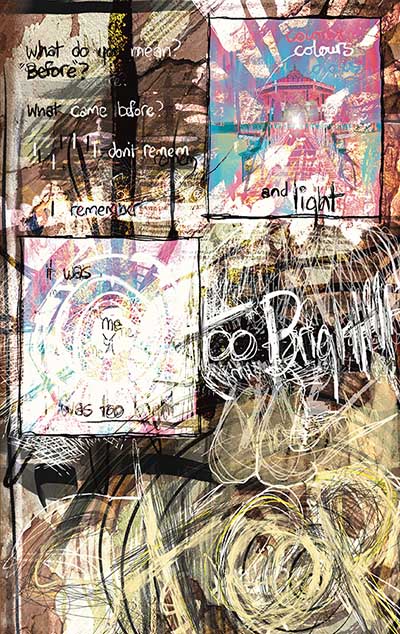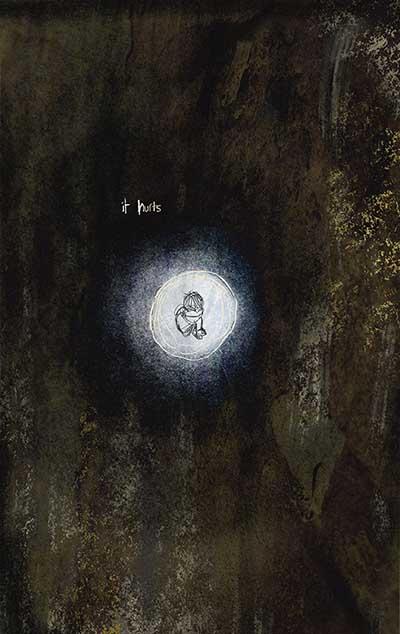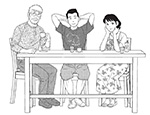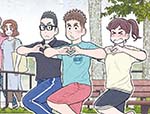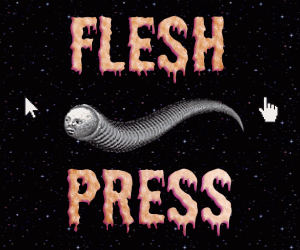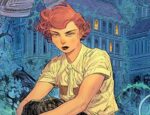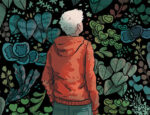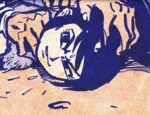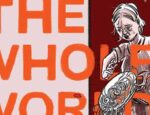Comics are a particularly effective medium when it comes to taking an extended visual metaphor and running with it. AJ O’Neill’s The Kid in the Cave is a strong example of that; a queer comics narrative that reminds us that the illustrated abstraction of lived experience can be all the more eloquent for the raw and visceral emotions it provokes in us. It’s a comics short that revisits O’Neill’s childhood and where he reaches back to his younger self, an incarnation who has been left feeling isolated by his queerness and neurodivergence.
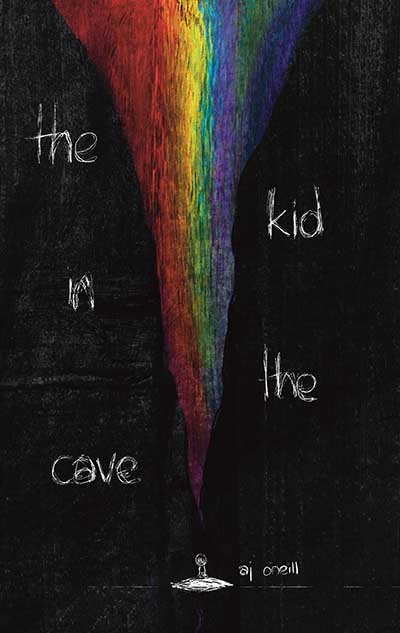
The Kid in the Cave, then, is autobio by way of symbolism. One that makes use of colour, or the absence thereof, as an emotional stimulus. The cave of the title acts as a seemingly inescapable prison; one wherein O’Neill as the titular kid is left feeling lost in a solitary expanse; a tiny figure in a vast darkness of loneliness and enforced othering. It’s a story about self-acceptance and healing, about embracing your past self, and about emerging from a place of seeming hopelessness into a comforting and welcoming personal space.
Contrasts of darkness and colourful light, then, become a pronounced and vital tool in communicating that spectrum of emotion. Lettering is similarly used to accentuate the comic’s themes. Sometimes it is stark and harsh to create a sense of oppression or despair; on others its placement and arrangement becomes subtle and nuanced, reflective of the soothing and thoughtful tone of later sequences. One of the greatest strengths of The Kid in the Cave is that it communicates so articulately on a simply instinctual level in its silent sections as it does in those pages where dialogue and exposition are more overtly used.
With contact details for the LGBT Switchboard on the back cover it’s important to note the importance of work like this in sharing experience with those who may be going through something similar. Comics are such a powerful format in that regard and The Kid in the Cave reminds of all of how the medium can take us so directly into the empathetic realities of others’ stories.
AJ O’Neill (W/A) • Self-published, £10.00
Review by Andy Oliver





